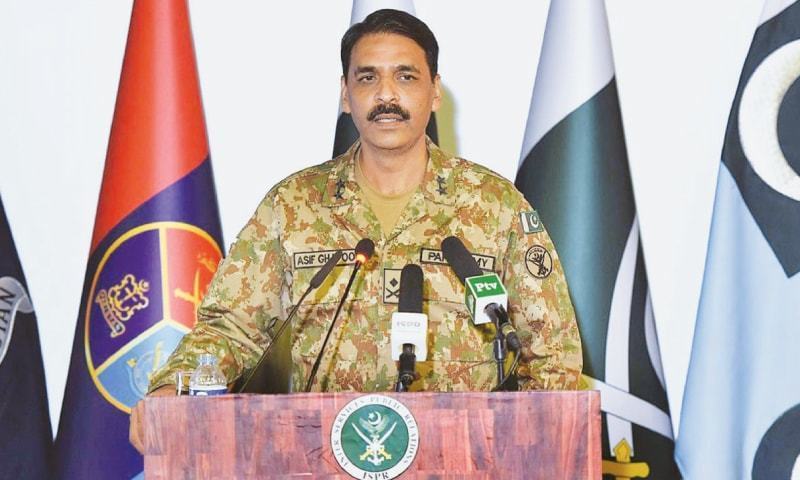
Widely respected as one of the ‘most trusted’ news providers in the world, incidents of British Broadcasting Corporation (BBC) being accused of inaccurate or motivated reporting are few. But just the other day Inter Services Public Relations (ISPR), which is the Pakistan Army’s media wing (that frequently also doubles up as the mouthpiece of Pakistan Government) trashed a BBC story, calling it a “pack of lies.” Written by M Ilyas of BBC News, this report (“Uncovering Pakistan’s secret human rights abuses,”) is based on the author’s personal interaction with locals and contains disturbing details of humongous loss of life and property as well as human rights abuses committed by Pakistan Army during its war on terror in what was earlier referred to as Federally Administered Tribal Areas (FATA).
As is its wont, the ISPR has outrightly rejected the entire report alleging that “The story carries conjecturing implicating Pakistan Army without any proof.” Admittedly, there is no real-time proof available because the Pakistan Army never allows independent media access into areas where it is conducting military operations. This raises the question as to why does Pakistan Army invariably debar independent media from visiting areas where it is fighting the war against terrorism? It claims that such restrictions are due to safety concerns for media persons which is understandable. But ISPR fails to explain how does this threat continue to exist even in those areas that the army proudly proclaims have been cleared of terrorists of all “hue and colour”? Furthermore, if there are genuine safety concerns, then why does ISPR still take ‘selected’ reporters on ‘guided tours’ of the front? The answers may not be forthcoming, but wouldn’t it be logical to conclude that denying independent media access into areas cleansed of terrorists is because there are things that Pakistan Army doesn’t want the media (and world) to know?
The BBC report on rampant human right abuses by Pakistan Army in its war against terror isn’t the first of its type. On 16 July 2014, when Pakistan Army’s much-publicised war against terror (‘Operation Zarb-e-Abz’) had just entered its second month, ISPR announced that, “35 fleeing terrorists were killed through aerial strikes in Shawal Valley.” But a week later, Newsweek carried a report citing “multiple accounts by residents” which confirmed that 37 civilians, including 20 women and 10 children had been killed in this air strike. It quoted Malik Mirzal Khan, a village elder as saying, “My 13-year-old daughter, brother, his wife and two of his kids were killed.” Khan went on to confirm that all the 30 people killed that day were “innocent civilians” and “those seven men who died were never involved in militancy.” While ISPR may also dismiss this claim, but it’s a well-known fact that even the most sophisticated weaponry boasting of infallible precision is prone to miss its target due to various factors such as atmospheric conditions and human error.
What makes the 2014 Newsweek report even more worrying is the comment of “a senior security official speaking on condition of anonymity” that gives an insight into the psyche of Pakistan Army officers. This official told Newsweek that “If a terrorist is living with his family and does not abandon them even during the time of operation and we have solid ground intelligence about the terrorist and we target his hideout, what would you call it, collateral damage or what?” He then went on defend such killings by saying “If a terrorist is using his family as human shield what do you expect the military to do?” ISPR may once again reject this calling it “a pack of lies,” but this viewpoint does raise suspicions that the Pakistan Army’s refusal to allow independent media access into conflict zones even after hostilities have ceased may well be to ensure that voices of unfortunate people like Khan who lost his daughter as well as a brother along with his wife and children are never heard!
What is amusing is that the ISPR’s “pack of lies” phrase seems to be its favourite stock reply to dismiss allegations of human rights abuses by Pakistan Army. In 2012, when Amnesty International released a report titled ‘“The Hands of Cruelty” – Abuses by Armed Forces and Taliban in Pakistan’s Tribal Areas’ in which it was mentioned that “..Far from bringing respect for the rule of law, it is clear that current armed forces practices, and the legal and administrative system applied in the Tribal Areas, foster a climate of total impunity for human rights violations,” the ISPR used this very phrase to dismiss this report. If the “pack of lies” part is amusing, then ISPR’s labelling this Amnesty International’s report as a “sinister propaganda campaign against Pakistan and its armed forces” is really side-splitting!
In its 2014 report, Newsweek mentioned a 28-year old shopkeeper named Wali Mohammad of Shawal Valley rejecting Pakistan Army’s claim of having killed 35 terrorists in an air strike on July 16 by using the Pashto expression “You cannot cover up the sun with a finger.” What he was implying is that “try your best, but the truth will eventually come out.” It would do the ISPR good to pay heed to this advice because the “pack of lies” refrain has been so oft-repeated that it has now started hurting the ears.
